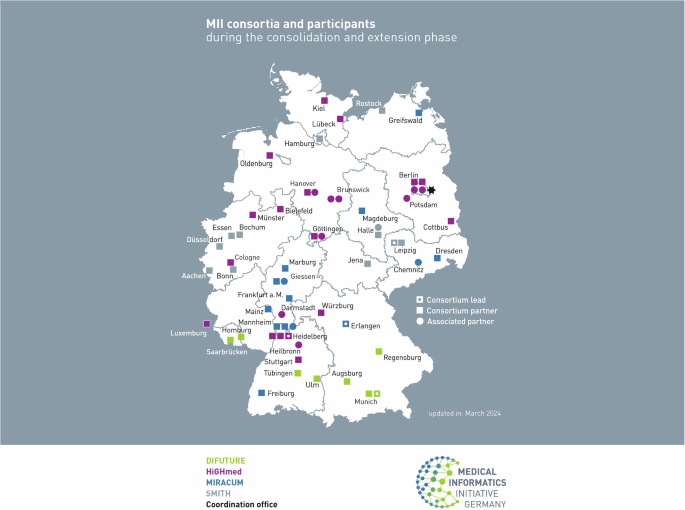Germany and Europe Drive Digital Innovation and AI Through Collaborative Use of Health Data

Federated Access to Health Data in Germany
Recent efforts show how federated access to vast health datasets can significantly enhance research capabilities while adhering to legal frameworks. A study by Bienzeisler et al. highlights a collaboration that allows access to approximately 7.9 million datasets representing 2 million patients. This initiative reflects a step forward for Germany and Europe in building a robust health data research infrastructure that fosters confidence among the public.
National Emergency Department Data Registry
Overview of the Registry
The National Emergency Department Data Registry serves as a key component of the German healthcare research landscape. This registry offers a federated research framework that enables standardized access to electronic health records (EHRs) from emergency departments across the country.
One of the primary advantages of this system is the ability to forgo individual consent since the data is stored locally, ensuring compliance with medical confidentiality and data privacy regulations. Researchers looking to use this data must seek approval from a data use and access committee, which assesses applications to ensure ethical and scientific rigor.
Decentralized Governance Challenges
The operation of this registry also exemplifies a successful model of decentralized data governance. Germany consists of 16 federal states, each with its own set of medical and data processing regulations, in addition to European General Data Protection Regulation (GDPR) stipulations. In contrast, countries like Canada streamline data management by storing all health records within a singular electronic health record system. This approach enables easier implementation of care pathways and decision-support tools.
Rapid Digital Transformation of the German Healthcare System
Historical Context
Germany’s social health insurance system, established in 1883 by Chancellor Otto von Bismarck, laid the groundwork for the current healthcare framework. With a population of roughly 83 million, Germany operates around 1,900 hospitals, employing about 430,000 physicians. The healthcare expenditure exceeds one billion euros daily, constituting over 10% of the national GDP.
In recent years, however, Germany has found itself lagging behind other countries in adopting digital healthcare technologies. The COVID-19 pandemic highlighted significant weaknesses in crisis-response capabilities due to a lack of a centralized health data system. This absence resulted in inefficient manual communication methods, such as through fax messages.
Initiatives to Improve Healthcare Delivery
In response to these issues, initiatives like the Network of University Medicine emerged in 2020, focusing on crisis management and COVID-19 research. This initiative is aimed at promoting clinical studies and facilitating knowledge transfer similar to strategies adopted in Canada for patient-oriented research. Additionally, Germany launched a 500 million euro funding scheme for medical informatics to enhance accessibility to secondary life science data.
The National Health Data Lab recently debuted, providing pseudonymized health data from around 75 million individuals within the statutory health insurance system. This significant step is aligned with Germany’s goal of fully digitizing its healthcare system, supported by an artificial intelligence strategy that fosters discussion on AI’s responsible use and its impact on society.
Milestone for the European Health Data Space (EHDS)
Germany’s investments in digital healthcare mark an essential phase for the European Health Data Space (EHDS). The European Union recognizes the value of transnational data utilization, and the EHDS aims to empower individuals to manage their electronic health data while facilitating the secondary use of this data for research and public policy.
This initiative seeks to establish uniform legal and technical frameworks for electronic health records across member states, which is vital for effective healthcare delivery and research.
Global Implications and Future Outlook
Countries like the United States and Canada have established significant resources and strategies for digital health. The U.S. hosts the National Library of Medicine and other major tech firms specializing in AI, while Canada pioneered national telemedicine solutions and holds a leading position in AI strategy.
The ongoing race for advancements in digital health and AI will increasingly depend on access to high-quality health data. Germany and the EU currently stand at the forefront of this movement, with their efforts serving as a model for other nations to emulate. Collaborative health data initiatives can ultimately enhance the wider landscape of global health and biomedical research, making a substantial difference in healthcare delivery and outcomes worldwide.




